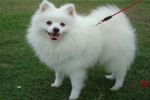
作文必背7个句型【一】
1。 It is considered /thought that人们(有人,大家)认为
2。 It is generally /usually accepted /agreed/recognized that普遍(一般,通常)认为
3。 It is believed that有人(人们,大家)相信
4。 It is well—known that大家知道(众所周知)
5。 It is said that据说(有人说)
6。 It is learned that据闻(悉)
7。 It is supposed that据推测
8。 It is estimated/predicted/calculated that据估计(预计)
9。 It must be pointed that必须指出
10。 It is reported that据报道
11。 It must be admitted that必须承认
12。 It will be seen that可见(可以看出)
13。 It will be seen from this that由此可见
14。 It is understood that不用说(都知道)
15。 It can not be denied that无可否认
16。 It has been proved/demonstrated that已经证明
17。 It may be confirmed that可以肯定
18。 It may be safely said that可以有把握地说
19。 It is sometimes asked that人们有时会问
20。 It is expected that/hoped that人们希望
21。 When it comes to要说到,要谈及
作文必背7个句型【二】
邀请信:
It is my pleasure / a great honor for me to invite you to ...
I am sure that you will enjoy yourself here.
I hope that you won’t decline my invitation.
感谢信:
It was kind and generous of you to do this for me and I do appreciate it more than I can say.
Thank you from the bottom of my heart for ...
道歉信:
I am terribly sorry that I have done ...
I hope that the settlement of the matter will meet your wishes.
I regret to inform you that I am unable to do ...
询问信:
I am writing to you in the hope that I may obtain ...
I shall be grateful if you can offer me the information about ...
I would like some detailed information about ...
求职信:
I wish to apply for a position with your company.
I am very interested in exploring a position as a ... with your company.
I trust myself that I have the appropriate qualifications and experience for this post.
投诉信:
I am writing to express my dissatisfaction with / at ...
I am completely disappointed to find ...
作文必背7个句型【三】
(一)改写一般疑问句:
(1)原句中有be动词的,将be动词提前,其他顺序不变。
例如:Thisisacat.变为Isthisacat?
(2)原句中有情态动词的(can/may/shall/would)将情态动词提前,其他顺序不变。例如:Hewouldlikeapie.变为Wouldhelikeapie?
(3)原句中是一般动词的,在句首加助动词do或dose(用于主语是第三人称动词单数的句子),其他顺序不变。例如:Iplaytheguitar.变为Doyouplaytheguitar.
(4)原句中的some变any。
注:以情态动词开头的一般疑问句,并且要求对方做肯定回答的`some不变。
(5)原句中的第一人称改为第二人称。例如:Iamanurse.变为Areyouanurse?
(6)以dose开头的一般疑问句,原来动词的第三人称单数形式要变回原形。例如:Hereadsastorybook.变为Dosehereadastorybook?
(二)改写否定句:
(1)原句中有be动词的,直接在be动词后面加not。例如:Itisadog.→It’snotadog./Itisn’tadog.
(2)原句中有情态动词的,直接在情态动词后加not。
例如:Iwouldlikeahotdog.→Iwouldnotlikeahotdog.
(3)原句中是一般动词的,在一般动词前加don’t或doesn’t(用于主语是第三人称单数的句子),doesn’t后面用原型。例如:Iseethreehamburgers.→Idon’tseethreehamburgers.
原句中的some变any例如:Ihavesomebreadan
dmilk.→Idon’thaveanybreadandmilk.
(4)以let开头的祈使句,如果是letus或letme,直接在其后加not;如果let后面其他人称代词宾格(you、him、her、them、it)就在let后面加助动词don’t。例如:Letusgotothepark.→Letusnotgotothepark.再如:Letthemdohomework.→Don’tletthemdohomework.
(三)对划线部分提问:
对划线部分提问,就是先把一个陈述句的划线部分去掉,然后变为一个特殊疑问句:一是特殊疑问句+一般疑问句;
二是特殊疑问句+陈述句(对主语或主语的定语提问,therebe结构除外)
⑴划线部分是人,用who提问。
⑴划线部分是主语,用who提问,who后面的动词要用第三人称单数形式。如:Whois;Wholikes;Whohas?
方法:who+原句的剩余部分
例如:①HelenandMikearelisteningtomusic.
→Whoislisteningtomusic?
②Ihavesomemodelplanes.
→Whohasanymodelplanes?
⑵划线部分是表语,用who提问。
方法:Who+剩余部分的一般疑问句形式
⑵划线部分是事或者物,用what提问。
方法:what+剩余部分的一般疑问句形式。
注:如果原句是therebe句型,直接用What’s+地点状语来提问。例如:①Wewouldliketobuysomethingsforaparty.
→Whatwouldyouliketobuyforaparty?
②Therearealotofcakesintheplate.
→Whatisintheplate?
⑶划线部分是物主代词或名词所有格,用Whose提问。
方法:⑴划线部分是主语的定语时,Whose+剩余部分
例如:Ourclassroomisbright.
→Whoseclassroomisbright?
⑵划线部分是表语或表语的定语时,Whose+剩余部分的一般疑问句形式例如:①ThewomanisSuYang’steacher.
→Whoseteacheristhewoman?
注:对某部分的定语提问,被修饰的部分跟随特殊疑问句往前提②ThispurseisYangLing’s.
→Whosepurseisthis?
⑷划线部分是地点,用where提问。
方法:where+剩余部分的一般疑问句形式
例如:TheyarehamingaMathslessonintheclassroom..
→WherearetheyhavingaMathslesson?
⑸划线部分是“多少”,用howmany或howmuch提问。
方法:⑴句中是可数名词的用Howmany+剩余部分的一般疑问句形式例如:Therearefifteentreesintheplayground.
→Howmanytreesarethereintheplayground?
⑵句中是不可数名词的用Howmuch+剩余部分的一般疑问句形式例如:Ihaveaglassofjuiceforbreakfast.
→Howmuchjuicedoyouhaveforbreakfast?
⑹划线部分是时间,用when或whattime(具体的几时几分)提问。方法:⑴when+剩余部分的一般疑问句形式
例如:SuYangandSuHaiareathomeonSundaymorning.
→WhenareSuYangandSuHaiathome?
⑵问具体的时间直接用Whattimeisit?或What’sthetime?问
例如:It’sthreeforty-five.
→Whattimeisit?或What’sthetime?
作文必背7个句型【四】
John can hardly understand Russian, ______ ______?
2. Tom said to Alice, Can you help me with the work? (宾语从句
Tom asked Alice _____ she _____ help him with the work.
3. The Red Cross has helped the homeless people in the floods four times since last
year.(划线提问
_____ _____ times has the Red Cross helped the homeless people in the floods since last year?
4. Tom didnt watch TV that evening. He listened to music. (句意不变
Tom listened to music ______ ______ watching TV that evening.
5. Will you go home tomorrow? the mother asked her son. (保持句意不变
The mother asked her son ________ he ________go home the next day.
6. They will move into the new school in a month. (对划线部分提问
________ ________ will they move into the new school?
7. Mr. Smith wanted to know where he could get the information. (保持句意不变
Mr. Smith wanted to know ________ ________ get the information.
8. You can do it in class. You can also do it at home. (保持句意不变
You can do it ________ in class ________ at home.

















